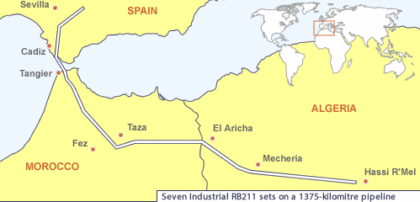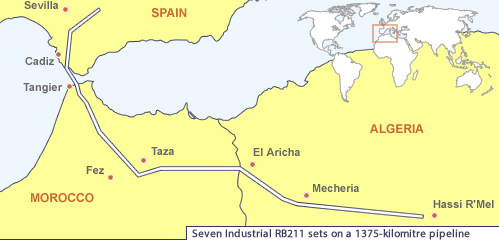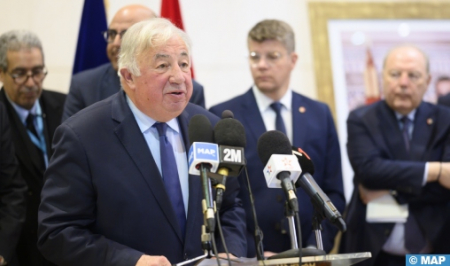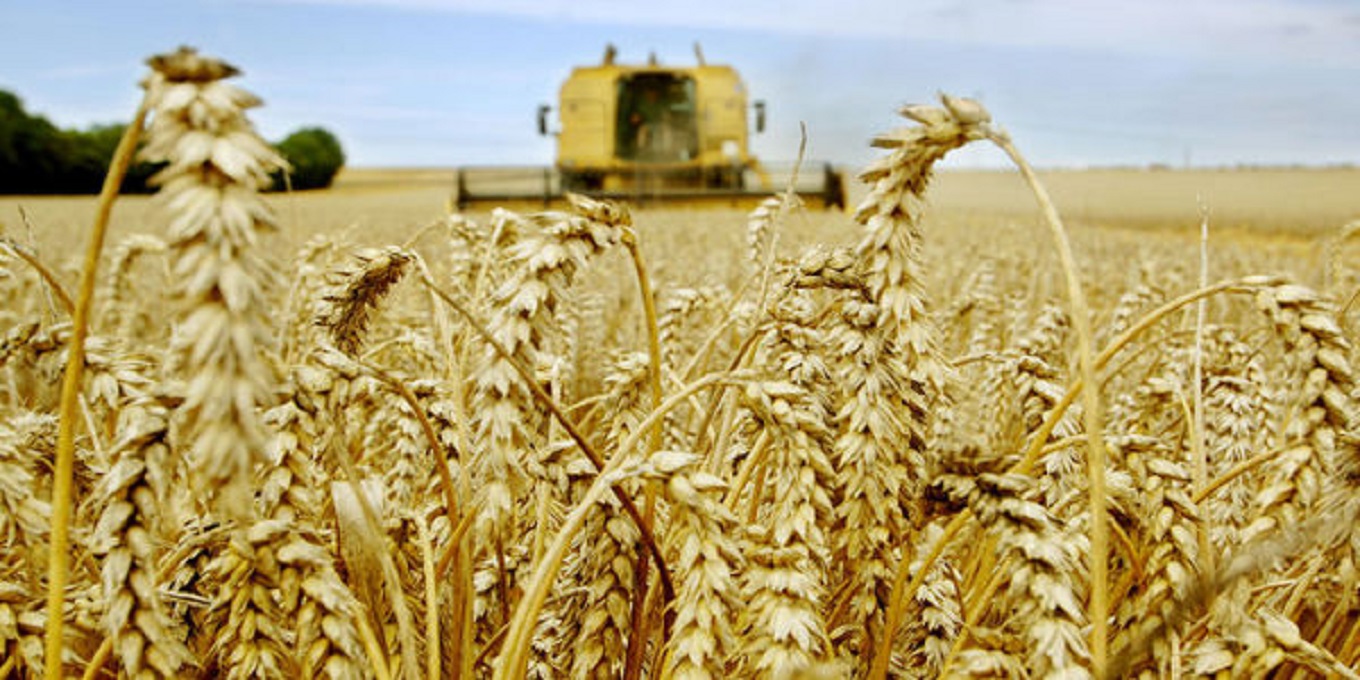 Fears are growing in Algeria over the possibility of the non-renewal by Morocco of the contract governing the Maghreb-Europe Gas Pipeline, which transports Algerian gas through Morocco and the Strait of Gibraltar to Spain and Europe.
Fears are growing in Algeria over the possibility of the non-renewal by Morocco of the contract governing the Maghreb-Europe Gas Pipeline, which transports Algerian gas through Morocco and the Strait of Gibraltar to Spain and Europe.
Concerns were voiced in the Algerian press, speculating about a potential cessation of the contract, which expires in 2021 after Morocco’s Energy Minister, Aziz Rebah, showed little enthusiasm for the future of the Maghreb Europe Gas Pipeline.
“Morocco is developing two highly strategic projects, the Jorf Lasfar (LNG installation) and the Nigerian-Moroccan gas pipeline,” Rebbah recently said in a statement to L’Economiste daily, showing that Morocco is resolutely engaged in unburdening itself from Algerian gas.
Algeria, which has obstinately maintained its borders close since 1994 in a bid to undermine Morocco’s economic interest, is wary of the Kingdom’s plans to boost its energy independence and diversify suppliers.
While it remains dependent on its fossil resources, Algeria looks warily at Morocco’s plans to diversify its energy sources and secures supply from various partners, including Qatar and Russia.
Morocco’s flagship gas projects
Morocco launched a gas strategy to boost its energy security and relieve itself from Algerian gas dependence. Along with investing in shale oil and renewable energies, liquefied gas is thus at the heart of Morocco’s strategy to satisfy a rising domestic demand on electricity. The Kingdom’s goal is to move from being a coal-dependent importer to a market in which clean energies and natural gas play an increasing role.
Morocco’s energy strategy is also geared towards satisfying a rising domestic demand on electricity as the country is projected to consume 65 TW/h by 2025, that is a 6.2% increase compared to 2016.
The Moroccan LNG National Development Plan, approved in late 2014, features an LNG onshore terminal in Jorf Lasfar near El Jadida to be completed for a total cost of $4 billion.The terminal will have a storage capacity of 5 billion cubic meters of LNG per year, a fitted marine jetty, regasification plants and new high pressure gas transmission pipes.
The LNG import facility at Jorf Lasfar will help bring the share of LNG to 13% of Morocco’s energy mix by 2025.
Recently, Sound Energy made breakthrough with several exploitable gas discoveries in Eastern Morocco. The company said that the Kingdom will become a key player in the global gas map by 2019.
Morocco is also seeking to replace Algerian gas with Russian and Qatari gas. Russia sees in Morocco’s port installations an opportunity to access African markets while Qatar has widened the gap with its competitors over the supply of 5 million cubic meters of LNG annually to the Jorf Lasfar Installation.
The agreements signed between Morocco and Nigeria to build an offshore gas pipeline has effectively buried plans to achieve the Trans-Saharan Gas Project that was mulled in 2002 to bring Nigerian gas to the Mediterranean through Niger and Algeria.
The Moroccan-Nigerian gas pipeline, to stretch over 4000km, will also set Morocco free from dependence on Algerian gas. This ambitious project that will extend to the Mediterranean the existing West African Gas Pipeline transporting Nigerian gas to Ghana will have beneficial impacts for energy security in all west Africa.
Morocco also stands as a leader in the MENA region in renewable energies, boasting one of the largest solar power plants in the world. The Kingdom is on course to achieving the target of meeting 42% of its power generating capacity needs through renewables by 2020 and 52% by 2030
Algeria an unreliable Gas supplier
Apart from being at loggerheads with Algeria over the Sahara issue and seeking new energy sources and suppliers, Morocco had better break away with Algerian gas in light of the unreliablity of the latter to maintain gas flow on the long term.
International Think Tanks have been worrying in recent years over Algeria’s declining gas production coupled with a surge in domestic consumption.
Since 2007, Algeria’s consumption of oil and natural gas has risen by more than 50 percent while its oil production has fallen by 25 percent. With less oil available for export, the government’s revenues have been hit hard, Stratfor consultancy said in a report on Algeria’s economic prospects.
Algeria’s gas production and export capacity is facing dim prospects. According to estimates, the North African country will be a net gas importer of LNG in two decades, warned the former Algerian energy minister Nordine Ait-Laoussine.
Earlier in May, the Oxford Institute for Energy Studies issued a report entitled Algerian Gas: Troubling Trends, Troubled Policies. The document points out to the depletion of Algerian gas and the declining export capacity saying: “Algeria would be left with only 15 bcm/year to export by 2030. In a lower production or high demand scenarios, it will cease exporting all together, therefore importing gas beyond any such a point,” said the report.”
In light of Algeria’s obstinacy to maintain the Maghreb Union in a state of limbo through maintaining closed borders, hampering intra-Maghreban trade and simmering tension due to its unconditional backing for the Polisario separatists, the renewal of the Maghreb-Europe gas pipeline remains shrouded in doubt as Morocco may seek to disarm Algeria of its sole weapon of geopolitical leverage, gas, by investing in LNG, Nigerian gas pipeline and renewable energies.



